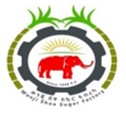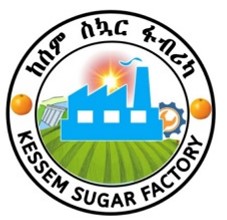Agriculture and Agro Processing
Overview of the sector
Ethiopian agriculture and agro-processing form the backbone of the country's economy, contributing significantly to GDP and employment. Agro-processing adds value by transforming raw agricultural produce into finished goods for local and export markets. Modernization and investment in technology are driving growth, enhancing efficiency, and unlocking new opportunities.
Company description
The Ethiopian Agricultural Business Corporation (EABC) is a key player in Ethiopia’s agricultural sector, driving innovation and sustainable growth. Established to enhance productivity and promote agribusiness, EABC contributes significantly to economic transformation, food security, and rural livelihoods. Leveraging its network and expertise, EABC fosters partnerships across the value chain for inclusive development. With a focus on modernization, increased yields, and value addition, EABC paves the way for a resilient agricultural sector. Additionally, EABC holds a comparative advantage in seed and natural gum production, with superior quality and profit margins. Open to investment and collaboration, EABC aims to expand its impact through joint ventures and partnership with the private sector, emphasizing innovation and job creation.
Overview of business units
EABC has four business units:
· Agricultural input supply,
· Seed supply, Natural Gum and forest product,
· Agricultural Equipment’s, mechanization and Engineering,
· Transport administration and maintenance
Company description
The Ethiopian sugar industry plays a significant role in the country’s economy, contributing to agricultural development, employment generation, and foreign exchange earnings. With favorable agro-climatic conditions and vast arable land suitable for sugarcane cultivation, Ethiopia has the potential to become a major player in the global sugar market.
Ethiopia’s nearly 120 million people consume about 700 thousand tons of sugar annually. The country’s climate and large swaths of irrigable land provide an ideal environment for sugar cane cultivation. [1]
The Ethiopian Sugar Industry Group (ESIG) is engaged in cultivation of sugar cane, refinery into sugar and by-products mainly ethanol, molasses, electricity. ESIG aspires to meet local demand and become a notable exporter for household and industrial sugar consumers.
Overview of business units
ESIG produces sugar and sugar by-products across its 13 plants. These plants are at various stages of development:
• Operational: Metehara, Wenji, Fincha, Omo Kuraz 2 and 3
• Trial: Tana Beles 1, Kessem, Arjo Dedesa, Tendaho
• Projects: Tana Beles 2, Omo Kuras 1 and 5, Welkayit
Company description
Wonji Shoa Sugar Factory, located near Adama City in Ethiopia’s Oromia region, is the country’s oldest sugar production facility, commencing operations in 1954. Originally constructed by the Dutch company H.V.A., the factory underwent significant modernization, culminating in a new facility that began production in 2013. The updated factory has a design capacity of crushing 6,250 tons of cane daily, producing approximately 174,946 tons of sugar annually, with plans to expand to 12,500 tons of cane per day, increasing annual sugar production to 220,700 tons.
Additionally, the factory contributes 20 megawatts of electric power to the national grid and has invested over 13.48 million Birr in social infrastructure, including schools and health stations, benefiting the surrounding community.
Company description
Finchaa Sugar Factory, established in 1998, is located in the Finchaa Valley of Horo Guduru Welega Zone, Oromia Region, approximately 350 kilometers northwest of Addis Ababa, Ethiopia. The factory operates a fully irrigated sugar estate on both banks of the Finchaa River, which is regulated by a hydroelectric dam.
In addition to sugar production, Finchaa Sugar Factory contributes to Ethiopia’s energy sector through a 31-megawatt biopower cogeneration plant
Company description
Keessem Sugar Factory, located in Ethiopia’s Afar Region, was established with a $123 million loan from the Chinese Development Bank and constructed by the Chinese company COMPLANT.
The factory began trial production in early 2015 and commenced regular production mid-year, with an initial crushing capacity of 6,000 tons of sugarcane per day, expandable to 10,000 tons. At full capacity, the factory produces 153,000 tons of sugar, 12.5 million liters of ethanol, and generates 29 MW of electricity, supplying 13 MW to the national grid. Future expansion is expected to produce 260,000 tons of sugar and 30 million liters of ethanol annually. The factory cultivates sugarcane on 20,000 hectares, using water from the 500 million cubic liter-capacity Kessem Dam, with additional development in the Bolhamon area.
Company description
Metehara Sugar Factory, located 200 kilometers from Addis Ababa in the Oromia region, was constructed by H.V.A. Company of the Netherlands and began sugar production in 1970 as the nation’s third sugar mill. Covering 10,230 hectares of sugarcane plantation, it has the capacity to produce over 130,000 tons of sugar annually.
An expansion in 2010 added an ethanol plant with an annual capacity of 12,500 cubic meters and a 9-megawatt power generation facility, making the factory energy self-sufficient. It was the first public enterprise in Ethiopia to implement Quality Measurement Systems (QMS), ISO standards, and Kaizen philosophy, achieving remarkable results and receiving awards, including trophies and medals from Prime Minister Haile Mariam Desalegn at the 2015 Kaizen Awards.
Company description
Tana Beles Sugar Factory, located in Jawi District of Awi Zone, Amhara Regional State, is 650 km from Addis Ababa and 225 km from Bahir Dar. Established under the Tana Beles Sugar Development Project in 2010, it was initially planned to source sugarcane from 25,000 hectares of land, part of a broader 75,000-hectare plan supporting three envisioned factories. Originally contracted to METEC in 2011 with an 18-month timeline, delays led to the contract’s termination in 2018.
In 2019, China CAMCE Engineering Co., Ltd. took over, completing construction despite COVID-19 challenges, and the factory began trial production in June 2021, officially inaugurated by Prime Minister Abiy Ahmed on June 6, 2021. With a daily crushing capacity of 12,000 tons, it produces refined sugar and 45 MW of electricity, of which 29 MW is supplied to the national grid, and plans to expand ethanol production in the future.
Quick Links
Contact
+251(0)111 70 45 40
info@eih.et
General Winget St, Hilcoe Building 5th floor, Addis Ababa ,Ethiopia
Copyright © 2025 All Right Reserved

 ETHIOPIAN AGRICULTURAL BUSINESS CORPORATION (EABC)
ETHIOPIAN AGRICULTURAL BUSINESS CORPORATION (EABC) ETHIOPIAN SUGAR INDUSTRY GROUP
ETHIOPIAN SUGAR INDUSTRY GROUP WONJI SHEWA SUGAR FACTORY
WONJI SHEWA SUGAR FACTORY KESSEM SUGAR FACTORY
KESSEM SUGAR FACTORY METEHARA SUGAR FACTORY
METEHARA SUGAR FACTORY TANA BELES SUGAR FACTORY
TANA BELES SUGAR FACTORY